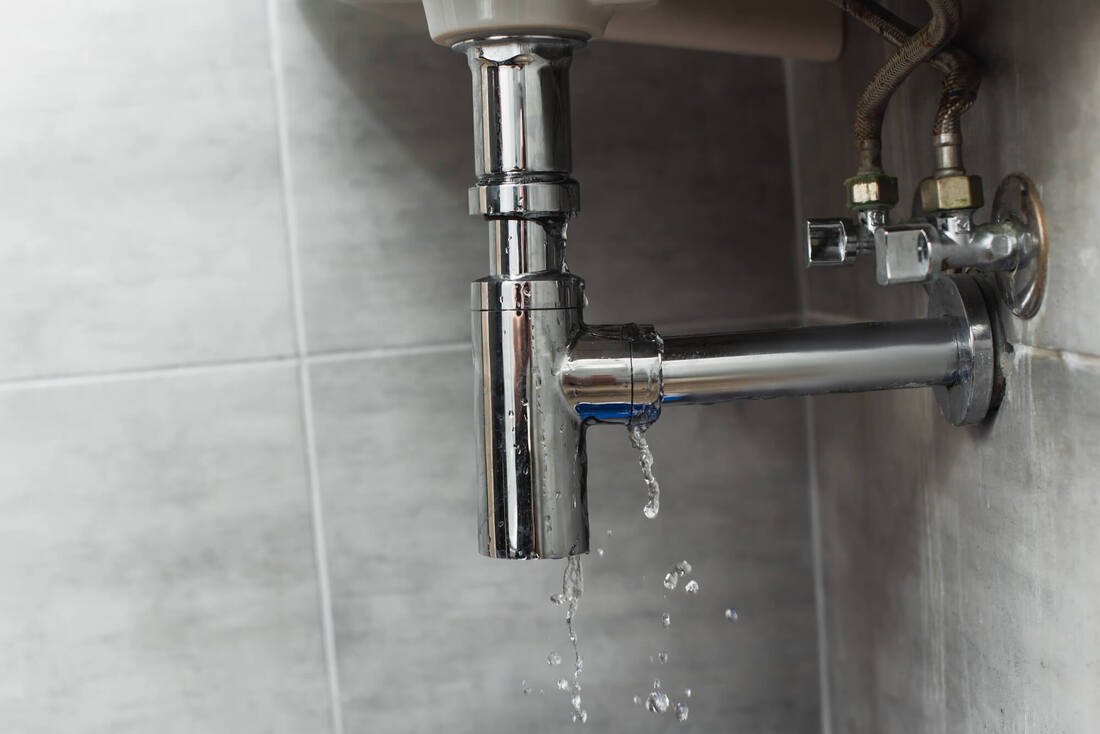|
The Insurance Information Institute reports that one in every 50 American homes experience water damage. Water damage can be caused from a plumbing leak, storms, air conditioning leaks and even when the fire department uses water to extinguish a fire. The effect of water damage on your property can be catastrophic and not to mention expensive. Repairs can range between hundreds and thousands of dollars, depending on the extent of the damage. If your property has sustained water damage, let our public adjusters in Palm Beach County know about it as soon as possible so they can help you get the claim you deserve.
When Should You Make a Water Damage Claim? What Type of Water Damage is Covered by Your Insurance Policy? Insurance companies are fully aware that water damage is not uncommon, so the policies they offer are very detailed but can also be restricted. If you read your policy, you will find that it only covers specific water damage. As you know, water damage can have numerous sources such as the following: · Accidental water discharge · Water damage due to a storm · Accidental sewer overflow or backup · Flood damage Insurance policies only cover sudden and accidental causes of loss that cause damage to your property. For example, if a pipe suddenly bursts, the claim should be covered as long as you stop the leak. Insurance policies are confusing for various reasons. It will read and include coverage in one section, then exclude the coverage in another section, then the insurance company will include an endorsement that changes the policy altogether. The best way to know what your coverage is to review your policy. An experienced public insurance adjuster can review and interpret your insurance policy. What Types of Water Damage Are Not Included? Water damage that is continuous and has been ongoing for a period of time is excluded in most policies and therefore, the resulting damage will not be covered. Sometimes the policy will have verbiage that allows coverage for damage that is not visible and is hidden or unknown to the policyholder. Water damage due to wear, tear and deterioration is not covered. Some examples of gradual water damage that is not covered under insurance policies are as follows:
Why Did My Claim Get Denied? There are many reasons why an insurance claim for property damage can be denied. If the damage to your property falls under the deductible, or has been going on for a period of time or comes from a source that is not covered in the policy, your claim can be denied. It is important to understand your coverage and the cause of loss before filing an insurance claim. If you are unsure if your property damage is covered, or you feel you were underpaid on your insurance claim, the best person to assist is a public insurance adjuster. Are You Looking for Reliable Public Adjusters in Palm Beach County? If you are looking for a public adjuster you can trust, we are here to help. At Reliant Insurance Adjusters, we have your best interest at heart and treat every property damage claim as if it were our own. We understand the stress that comes with handling insurance claims and will alleviate you of that stress. Our team has the knowledge and experience to get you the highest possible settlement for your claim. Give us a call to learn more about what we do.
1 Comment
Setting up a business requires a substantial number of resources, and over time, organizations can accumulate a variety of assets, including inventory, machinery, a growing workforce, and commercial property. But it is important to keep in mind that you need an insurance policy for any property you acquire. It is a must to protect the building, its contents, exterior fixtures, and much more.
You may be all set with your insurance policy and have done everything right. However, when it comes time to file an insurance claim for commercial property, many individuals are not sure where to begin. It is important to properly understand the basics of commercial property insurance policies to properly file any necessary claims. General Commercial Property Insurance Policy Coverages The main goal of having commercial property insurance is to financially safeguard an organization’s physical assets in the event there is damage due to fires, burst pipes, storms, theft, vandalism, etc. Below are common coverages that commercial property insurance policies typically include. The Commercial Building Commercial property insurance policies generally include some amount of coverage for the building or structure itself. It also often includes several other parts of the commercial property, such as: ● Completed additions ● Interior or exterior fixtures ● Permanently installed machinery and equipment Business Personal Property Business personal property coverage (BPP), does not cover the building unless there are permanent improvements that were installed in a rented space, but rather provides coverage for the commercial property’s contents, such as: ● Furniture and fixtures ● Machinery and equipment ● Personal property owned and used in the business ● Upgrades made to a rented space ● Leased personal property The Personal Property of Others Commercial property insurance also often covers the personal property of others and is often an overlooked element of this type of insurance. This means that other individuals’ property that is under your care, control or custody is allotted some amount of coverage in your commercial property insurance policy. If a claim were filed for this coverage, the payment is often made to the property owner and not the other individual whose property was damaged. Understanding Commercial Property Insurance Claims When it comes to filing an insurance claim for your commercial property, it is important to begin the process and accurately report the property damages as soon as possible after the event occurs. Public adjusters are a great third-party resource to help you efficiently navigate the claim, take the appropriate action, and complete the appropriate documents. When filing a commercial property insurance claim, it is important to retain copies of all documents and relay important data that supports your claim to your public adjuster and other appropriate parties that could include a forensic accountant’s findings or pictures taken of the damage. Your insurance company will assign your claim to an adjuster. However, they are hired by your insurer and may not have your best interests in mind. This is why you should consider hiring a public adjuster who will look out for your best interests and who can verify the damages and provide the proper guidance for your claim. Filing a Commercial Property Insurance Claim Depending on the damages, loss, and expected level of compensation, the time frame for your commercial property insurance claim can vary. To help ensure a smooth claims process and receive the compensation you deserve, you should hire a public adjuster who will advocate for you through the entire negotiation and claims process. At Reliant Insurance Adjusters, we treat every client’s property claim as if it is our own. Other companies may offer similar services, but we are dedicated to providing the professionalism, knowledge and experience to get you the highest possible settlement for your claim. Contact us today to help you with your claim. No matter how strong the foundation of your property is, windstorms, fire, and floods can compromise and cause damage to your property. If you experience property damage and plan to file an insurance claim, you should hire a public adjuster in West Palm Beach or Fort Lauderdale.
The job of a public adjuster is to assess the extent of the damage to your property, review your insurance policy and advise you of all the coverages and exclusions in the policy. Your public adjuster should thoroughly evaluate and document all the damages, prepare a detailed estimate of the damage, and assist you with filing an insurance claim. They will also meet with your insurance company for all inspections and deal directly with them to alleviate that stress from you. Is It Time to Hire a Public Adjuster? What Is a Public Adjuster? A professional and reputable public adjuster does not work for the insurance company but work for you the policyholder to protect your interests when you have a property damage insurance claim. They are present for all inspections with your insurance company and hold the insurance company accountable for the proper payment of your claim. More often than not, once you realize that filing a claim is a tedious and painstaking process, you will want to hire a public insurance adjuster. What Can a Public Adjuster Do for You? Public adjusters will assist you throughout the insurance claim process. If you feel that your insurance company underpaid your insurance claim, a public adjuster can reopen your claim and obtain the property payout for your damages. An experienced public adjuster can assist and negotiate water damage, hurricane, wind, fire, smoke, mold, flood damage and sinkholes. However, did you know that property losses can also lead to other losses like business income as well as additional living expenses? Your public adjuster can evaluate and should be able to assist you with those portions of your claim. Let’s admit it, insurance policies and their wording are difficult to understand especially when they include coverage, then remove the coverage, then add it back into the policy with a confusing endorsement. Let your public adjuster review the policy and explain the confusing coverage more simply. Public adjusters are well-versed in this field and speak the language. They can communicate with you to explain your policy and your rights as a policyholder and, at the same time, negotiate with your insurance company for a proper claim settlement. What Could Happen If You Don’t Hire a Public Adjuster? If you want to handle your own insurance claim, that is your right, but you should be prepared to encounter unexpected hurdles during the process. Sadly, most people who forego hiring a public adjuster are disappointed because the insurance company underpaid or denied their claim. The process itself is also time-consuming and will demand your time and attention, pulling you away from your family, work or business. The good news is you don’t have to go through it yourself. Instead, a public adjuster will guide and assist you from day one until your claim is settled. Are You Looking for a Public Adjuster in West Palm Beach or Fort Lauderdale You Can Trust? If you need help filing an insurance claim, you don’t have to look far. At Reliant Insurance Adjusters, we have your best interest at heart and will treat your property damage as if it were our own. Although many companies offer the same services as we do, we strive to give you nothing but the best service by providing our knowledge, resources, and experience so that you can get the highest possible settlement for your claim. Give us a call to know more about what we do. Life is full of accidents just waiting to happen. And when they cause property damage, it can be challenging to decide whether you should file an insurance claim.
You try to avoid being labeled as a constant claimer by your insurance provider, but you also pay a substantial monthly premium hoping your insurance will financially shield you from accidental damages. It can be complex to determine how best to proceed in the event of property damage, and it’s important to comprehensively evaluate the situation and consider the following:
So, should you file a claim with your insurance provider or not? When You Should and Shouldn’t File an Insurance Claim Determining whether to file an insurance claim for property damage can be challenging. While the purpose of having insurance is to help you pay for the costs of extensive property damages, some question whether filing a claim can result in your premium increasing whether your claim is covered or denied. However, that should not necessarily deter you from filing a claim with your insurance provider. Here are a few pointers to help you determine when it is and is not in your best interest to file an insurance claim for property damage. When it comes to filing an insurance claim for damages to your residential or commercial property, the property damage is generally a result of natural causes and sometimes old (or damaged) structural materials such as your roof shingles, leaking pipes, etc. When You Should File a Claim Ideally, you should file a claim with your property’s insurance company when you have significant damage to your property, such as a damage to your roof causing interior damage to your property. Also, a broken pipe or a leak from your HVAC system can cause a lot of damage to the interior of your property as well. When You Shouldn’t File a Claim You should not file a claim if the property damage is minor or superficial. If you are still unsure whether it makes sense to file a claim or not, you can always calculate the cost of repairs. And if the repairs cost less than what you would pay for your deductible (or if it is only a few hundred dollars over), then you should try to avoid filing a claim. Consult with a public insurance adjuster, like our team at Reliant Insurance Adjusters, and we can help you assess how much damage your property has incurred. Should or Shouldn't You File an Insurance Claim? It can be exhausting and even time-consuming to determine whether you should file an insurance claim. Determining the extent and cost of property damage is a key factor as to whether you should file an insurance claim. At Reliant Insurance Adjusters, we can assess the damage and help you determine whether filing an insurance claim is truly in your best interest. We are dedicated to providing the professionalism, experience and knowledge to help get you the highest possible settlement for your claim. Settling insurance claims is now, more than ever, a complicated and confusing process. Allow us to give your claim our personal attention and share our expertise, and you will see the difference we can make. Contact us today to see how we can help. |
AuthorKaren Schiffmiller Archives
July 2024
Categories |








